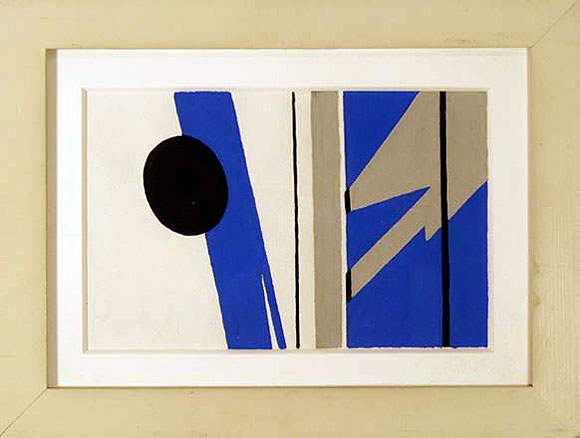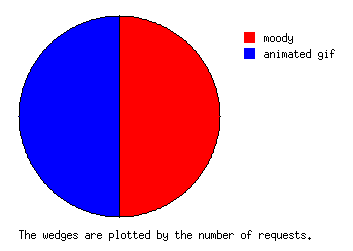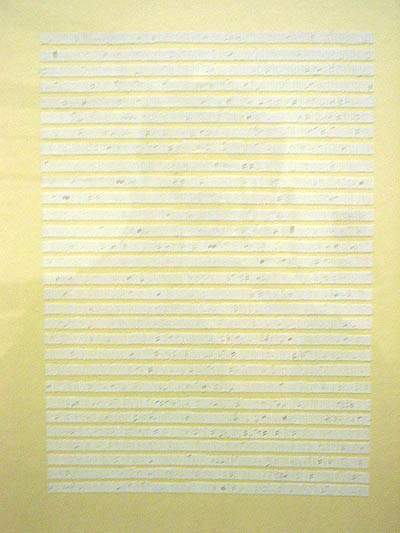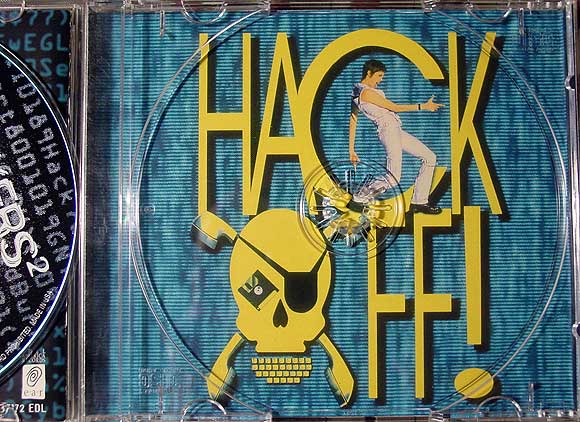View current page
...more recent posts
"Clip City" [mp3 removed]
I have posted this tune several times--it's kind of my "learner."
This version I'm calling self-"mastered" because I used some compression and reverb plug-ins to give it a fuller sound. I finally took a minute to learn how to use Send effects in Cubase, so I could automate a "wet/dry" parameter on the Sidstation track. Doing so converted that track from mono to stereo (sort of) and added reverb that comes and goes while it's playing. Also, I now know to put the compression "limiter" setting at the Master gain so the sum of all three tracks never goes above -.2 db. D'oh. Each track (drums, Mutated drums, and Sid) has parametric compression that both compresses it and boosts EQ on the mid-level frequencies. [/music diary]

"Song 9 (Wipeout)" [mp3 removed]

image of work by Ralston Crawford, a lesser-known Precisionist

"Liberal hawks" say things that make the skin crawl. Steve Gilliard quoted this, from The New Republic:
Maybe these people are right that withdrawal is necessary, but I don't think we should underestimate the consequences of it. By consequences, I don't mean anything as concrete as the prospects of a possible Al Qaeda sanctuary in Anbar provence or the abandonment of thousands of Iraqis to certain death. I'm talking about something more nebulous: what are the consequences of America losing a war--which is, after all, what withdrawal will mean? What will it do to our position in the world? What will it do to the national psyche? And what will it do to the people who fought in that war? (Yes, they'll be out of harm's way, but they'll also be left to conclude that all their efforts--and their sacrifices--were in vain.)Translation: "It's our oil now."
Granted, these are all things Bush and supporters of the war should have thought more about before we invaded Iraq; but now that we're there--and we're all so sick of this war that many of us want to get out--we can't afford to ignore them again. The question about the surge [escalation --tm] to me is: are the consequences of defeat so dire that it's worth one final attempt to avoid it?
I don't know the answer to that. I'll watch Bush's speech tomorrow night; I'll listen to what Kennedy and Biden and any other Democrats have to say in response; and I'll try to come to a conclusion. Maybe that's not a position of "moral seriousness." But I can't help but thinking that it was certainty--on the part of supporters of the war--that got us into this mess. And I'd hate for such certainty--on the part of opponents of the war (some of whom were actually certain in their support of the war not that long ago)--to get us into another one.
--Jason Zengerle
New stiffies. If I was a "photographer" I'd just throw away my gear. Be sure to click on images for the "easter eggs."

From the comments, some back and forth about Cody Trepte's recent show at NYU is below. To recap, it included three types of work: "binary cross stitches," an essay by pioneering computer scientist and codebreaker Alan Turing with everything but the 1s and 0s removed, and collages consisting of the cut-out negative spaces (spaces between words) from another Turing essay.
t.m. (from the original post) The show is a non-standard take on "computer art" in the gallery context. The formal vocabulary is reductive (or accumulative) minimalism a la Yayoi Kusama's airmail stamp paintings, and while the subject matter is the language of both the computer and the computer scientist, it's treated not in a literal way but rather as an absence, or anti-content. As the press release explains, Turing was gay and accused in the not so swinging '50s of "acts of gross indecency." His "sentence" was an "experimental hormone therapy" consisting of estrogen injections to "reduce the libido." He died a couple of years later, apparently a suicide, but with questions lingering. Trepte's work is thus not the typical Buzz Lightyear computer-fetish celebration but rather an examination of the repressed, fragile, elegiac back story to the "machine that's changed our lives."
p.d. tom im struggling with this stuff a bit...
cos i want to see computer art that isn't exhibited on a computer, and while this isn't computer art i dunno it seems superficial. with a process like this, why mess with turing as a subject?? to me it's arbitrary output is completely at odds with turing's work - an extremely insightful approach into the nature of numbers with [in his mind] applications towards the understanding and hopeful emulation of human consciousness.
maybe it's an idol worshipping thing cos to me turing is pretty much the Biggest Playa In Da Game and anything made about him would probably seem like it hasn't done enough. but in this case i feel like i wouldn't gain anything from seeing the work and much of it [according to the press release] actually seems to misunderstand its own subject matter.
btw i think he did dream in code: i've read that turing was comfortable doing base-32 arithmetic in his head. talk about a nerd!
t.m. I'm reminded of the joke about the old man in the powdered wig found in Beethoven's crypt carefully erasing musical scores. "What are you doing in here?" someone said. "Decomposing," he said.
But seriously...
There's 2 bodies of work here that kind of get smeared together. The cross stitches ask us to look at code as pure form and are not particularly "deconstructive." The erased texts are meant as a kind of protest mingled with process art and are also pretty seductive as objects.
I usually gripe about art that relies on a back story to be complete but in this case I'll give the artist his "repressed history of computing." John Nash was also gay, or bi, but you'd never know it from A Beautiful Mind, the movie. It's freakin Russell Crowe and his wife is Jennifer Connelly!
I'm for this show because Turing was all about meaning and look where his talent got him. Compulsory hormone treatments! If someone wants to highlight his texts in a combination fan tribute and act of negation (a la Rauschenberg's erased de Kooning drawing), I think there's room for that.
The peripheral stuff of computing, the things on paper, the markings, have their own presence and constitute a kind of mute, parallel language that an artist can illuminate for the rest of us. A bit like JG Ballard calling corporate memos and charts the true literature of our age.
I guess I'm saying there's different ways to pay homage to Turing. But it's true his virtues are largely left out.
p.d. jesus - who let the dogs out on the beethoven punchline? that was ripe. more jokes AND paintings of american mammals in the future please!
gotcha with the homage thing, i guess what im saying is i find the back story - creative guy who's repressed homosexuality got him killed [sickening as it sounds to non-Republicans] - historically a bit common. i think his theoretical ideas, ideas that have little to do with binary numbers per se, are far more worthy of inspection through art practice especially since they are still little understood by most artists who use modern day Turing-complete machines [i.e. every computer on the planet].

more
